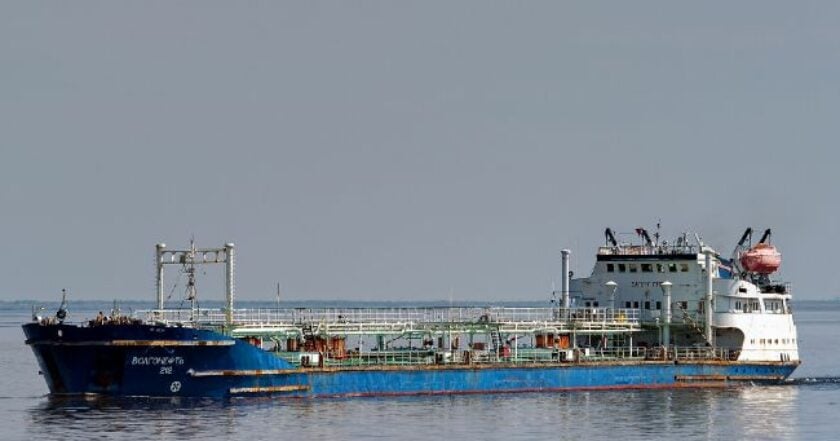China shuts out Russian "shadow fleet" tankers from largest ports – Reuters

Photo: wikipedia.org
Shandong Port Group, one of China's largest port companies, has banned tankers from operating at its ports under US sanctions. The move is aimed at restricting access to key oil terminals in Shandong province, a major importer of oil from countries under US sanctions, such as Iran, Russia, and Venezuela.
Reuters reported that.
According to the publication, Shandong Port Group controls major ports on China's east coast, including Qingdao, Jizhao, and Yantai, the main terminals for importing sanctioned oil.
Last year, Shandong province imported about 1.74 million barrels of oil daily from Iran, Russia, and Venezuela, accounting for about 17% of China's imports.
Traders have reported that the ban can potentially decrease imports into China, which is currently the top oil-importing country in the world. This is due to restrictions on dockage, unloading, and other port services for tankers on the US Office of Foreign Assets Control (OFAC) sanctions list.
The ban was implemented after the tanker Eliza II, which was under sanctions, was unloaded at the Yantai port in early January.
According to Vortexa, a tanker tracking company, eight huge tankers, each with a capacity of two million barrels, primarily offloaded Iranian oil in Shandong during December. These vessels included the Phonix, Vigor, Quinn, and Divine, which are currently under US Treasury sanctions.
According to Michele Wiese Bockmann, chief analyst at Lloyd's List Intelligence, the active shadow fleet carrying Iranian, Russian, and Venezuelan oil is estimated to consist of around 669 tankers.
She said that 250-300 tankers were typically involved in transporting Russian oil, and that number does not include Iran's largest operator, NITC, and the Russian tanker group, Sovcomflot.
Between October and December, the US Treasury Department imposed sanctions on 35 tankers in Iran's shadow fleet, excluding vessels operated by NITC. Washington imposed separate sanctions on Sovcomflot in early 2024.
Washington imposed additional sanctions on companies and the shadow fleet involved in Iranian oil last month. President-elect Donald Trump, who will take office on January 20, is expected to tighten sanctions against Iran further, as he did during his first administration.
For reference:
As early as December 2022, Russia began creating a "shadow fleet" of old tankers to export oil to circumvent sanctions imposed on it due to the war against Ukraine.
As Rubryka wrote earlier, the United States imposed sanctions against the organizers of the transportation of Russian oil sold above the ceiling of $ 60 per barrel. Thus, all their property in the United States was blocked, and all transactions related to them, carried out both by individuals in the United States in particular and within the country in general, were prohibited.
It is worth mentioning that the European Union intended to direct Denmark to examine and possibly halt tankers carrying Russian oil through its waters. This was part of efforts by Western nations to set a limit on the pricing, which Russia has managed to evade.
Moreover, Russian vessels belonging to the so-called "shadow fleet" have been the source of at least nine oil spills worldwide since 2021.
In turn, Ukrainian intelligence has identified 238 oil tankers that provide the Russian Federation with multi-billion dollar revenues and pose threats to global environmental security.





















































